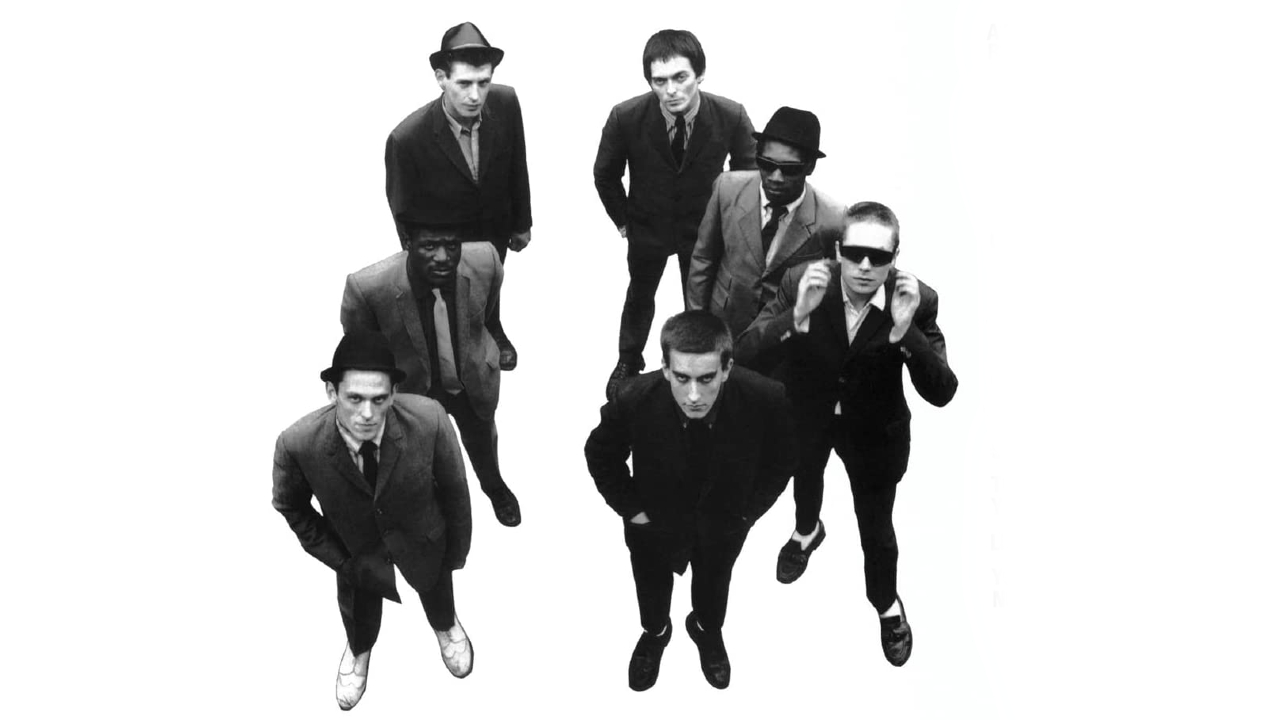The 10 essential Specials songs you need to know
The seminal British two-tone band have inspired generations of artists. Here are the ten songs that defined their career

Formed in 1977, Coventry two-tone and ska revivalists The Specials are one of the most important and revolutionary bands in the history of pop culture. The brainchild of lead songwriter and keyboardist Jerry Dammers, the band were a potent mix of young, angry British punks and Jamaican rocksteady fans brought up in a sound system culture. The collision of the two ideals created a brand-new version of ska, still as euphoric and danceable as it ever was, but shot through with the burning anger and frustration of the youth of Thatcherite Britain. The Specials represented what Britain could be: multicultural, respectful, intelligent and socially conscious. As a collective they made some of the finest music this country has ever produced and, with the sad passing of frontman Terry Hall at the age of 63 fresh in our minds, now feels like the right time to celebrate the band with their 10 most essential songs.

A Message To You Rudy (The Specials, 1979)
The band’s second single, recorded with the help of legendary Jamaican ska musicians Rico Rodriguez and Dick Cuthell on trombone and trumpet respectively, The Specials' cover of Dany Richardson’s 1967 song is an essential moment in giving British two-tone some much needed credibility. A faithful reworking of the original, it kept the effortless cool of the rocksteady version, but added that little bit of gritty, British punk rock harshness to the sound. As such, an entire movement was born.
Nite Klub (The Specials, 1979)
A woozy, lackadaisical brass opening gives way to a skanking, full-throttle banger, with one of the finest dub bass breakdowns you’ll ever hear smack bang in the middle. Nite Klub is an absolutely huge tune, but it’s Terry Hall’s sneering, scattershot delivery of lyrics detailing the apathy and pointlessness of spending his time “in a place like this” where “the beer taste just like piss” that is the stand-out element here. The song manages to be joyously fun, while scathing in its take down of Britain’s drinking, fighting and fucking culture.
Little Bitch (The Specials, 1979)
Jerry Dammers at his meanest, Little Bitch is a really harsh song, detailing Dammers' feelings on the, ahem,”bitch" that the song is aimed at. We’re not going to get into the lyrics here, because that is a hot potato, but it’s clear that he’s not happy, and this is a hell of a diss track. Musically, though, it’s really hard to argue that Little Bitch isn’t great: a warp-speed, careering, punk rock rager, it showed a rare glimpse of The Specials at their very, very angriest.
Too Much Too Young (live version) (A.K.A. Live, 1980)
The original version of the song that appeared on the band’s self-titled debut is very good indeed - a skanking, slowed-down lament aimed at not wasting your youth. Lyrically it’s another pretty brutal attack (describing someone’s “cute” baby as “Just another burden on the welfare state” is savage), but it still keeps its heart in the right place. Nevertheless, the song really took on a life of its own when it was released in a double, maybe even triple-time, rapid version on a stopgap EP in 1980. It gave the band their first ever number one single, and this version remains one of their most instantly recognisable tracks.
Enjoy Yourself (It's Later Than You Think) (More Specials, 1980)
The Specials' second album saw band leader Dammers make a concerted effort to push his colleagues in a variety of musical directions, the frustration from other members at his love for organ muzak eventually leading to Terry Hall and fellow vocalists Lynval Golding and Horace Panter leaving to form Fun Boy Three and ending the classic line-up of the band forever. Still, the record opened with an effervescent cover of Carl Sigman and Herb Magidsen’s 1949 tune. It’s essentially a ska reworking of the song, but there are more than enough hints that this is going to be a fuller, broader and weirder version of what we’ve heard from the band before. It doesn’t all pay off on More Specials as a whole, but this is a glorious opening to the album that became a classic in its own right.
Do Nothing (More Specials, 1980)
Another of the straighter dancehall tracks from More Specials, the second single from the record was released as a double A-side with an excellent cover of Bob Dylan’s Maggie’s Farm (referencing then-Prime Minister Margaret Thatcher). Do Nothing is a wonderfully catchy, two-stepping, summery piece of music, but it also hides some biting lyrics laced with the frustration of a seemingly never changing society. Here The Specials once again prove they are masters at sweetening the bitterest of pills.
The latest news, features and interviews direct to your inbox, from the global home of alternative music.
Ghost Town (Ghost Town EP, 1981)
Quite simply put, Ghost Town is one of the most important, remarkable and poignant singles ever released by a band from the United Kingdom. With police clashing with black communities across the UK and riots taking place in Brixton in the aftermath of the infamous New Cross House Fire in London in early 1981, the United Kingdom was in chaos and disarray. The week after the riots, Ghost Town, The Specials' ode to societal decay, inner city violence and mass unemployment, hit to the top of the UK charts. It’s hard to think of a single other song in UK chart history that has summed up the mood of a nation so crushingly succinctly. Ghost Town remains a landmark moment for art as a reflection of the world around it, and is one of the finest moments in pop history. That six minutes alone is an incredible legacy for the band.
Nelson Mandela (1984)
Divisive a song it may well be, its pop sheen, brash parping and simplistic message a world away from the gritty, grey, kitchen sink realism of The Specials at their best. Plus, of course, the lack of Hall, Panter and Golding means that some will be quick to dismiss this particular iteration of the band (it was released under their The Special A.K.A.). But, to Dammer's credit, it’s a hell of an ear-worm, and it brought Mandela to the attention of the record buying public long before anyone else. It also ushered in an era of landmark charity and protest songs becoming the norm, getting in a full nine months before Band Aid kicked the charity rock song doors in.
B.L.M
Another superb track from Encore, this time with a funky wah-wah guitar and a fantastic walking bass line. But it’s the lyrics from Lynval Golding, who details his entire life as a black man born in Jamaica, who joined his father in the UK in the 1960s before moving to America in the 90s, and the racist attitudes he has experienced throughout that time, that star here. Golding’s story put to music is pure poetry, and the chorus hook of “I’m not here to teach you, I’m not here to preach to you, I just want to reach out to you” is brilliantly catchy, beautifully heartfelt and exceptionally moving. A wonderful piece of musical storytelling.
10 Commandments (Encore, 2019)
2019’s emotional comeback album was both a commercial and critical smash, giving the band the first number one album of their career and being just as danceable and furiously political as ever. One of the most inspirational tracks is the band's collaboration with Saffiyah Khan, the young woman who was photographed calmly taking the ire of an EDL bigot screaming in her face in an iconic image that would become an inspiring act of defiance. Her spoken word takedown of racism, toxic masculinity and Britain’s grubbiest and most revolting attitudes alongside a slow, skipping dub musical backdrop is amazing, and showed that The Specials were as vital a voice today as they were 40 years prior.

Stephen joined the Louder team as a co-host of the Metal Hammer Podcast in late 2011, eventually becoming a regular contributor to the magazine. He has since written hundreds of articles for Metal Hammer, Classic Rock and Louder, specialising in punk, hardcore and 90s metal. He also presents the Trve. Cvlt. Pop! podcast with Gaz Jones and makes regular appearances on the Bangers And Most podcast.
